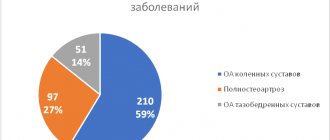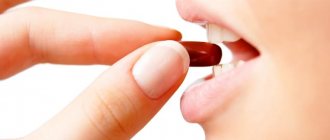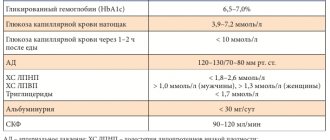Dexamethasone is a steroid drug with anti-inflammatory and immunosuppressive effects. It is used to treat rheumatoid diseases, asthma, allergies, chronic obstructive pulmonary disease and many other diseases. According to the results of the RECOVERY clinical trial, which involved more than 6 thousand patients with coronavirus infection, dexamethasone reduced the mortality rate of patients with COVID-19 who were on mechanical ventilation by a third.
After this, the head of the World Health Organization (WHO) called these results a “scientific breakthrough.” However, the study has not yet been peer-reviewed or published in any scientific journal. The authors promise to do this in the near future.
Introduction
Dexamethasone (ATC code: H02AB02) is a synthetic hormone of the adrenal cortex, a glucocorticosteroid (GCS), a methylated derivative of fluoroprednisolone.
It has anti-inflammatory, antiallergic, desensitizing, antishock, antitoxic and immunosuppressive effects. Interacts with specific cytoplasmic GCS receptors to form a complex that penetrates the cell nucleus and stimulates the synthesis of matrix ribonucleic acid, the latter induces the formation of proteins, including lipocortin, that mediate cellular effects. Lipocortin inhibits phospholipase A2, suppresses the release of arachidonic acid and suppresses the synthesis of endoperoxides, prostaglandins, leukotrienes, which contribute to the processes of inflammation, allergies, etc. [1]. GCS block the synthesis of a wide range of “pro-inflammatory” mediators, an increase in the concentration of which as part of a “cytokine storm” is associated with an unfavorable prognosis for COVID-19 and the risk of developing acute respiratory distress syndrome and sepsis [2]. A number of studies have shown the negative effect of GCS on the course of infections caused by structurally similar coronaviruses (SARS-CoV, MERS-CoV), in which, however, a hyperinflammatory response, often observed in severe COVID-19, is not observed. A systematic review of observational studies of corticosteroids prescribed to patients with SARS showed no effect on patient survival and an increased risk of possible harm (development of avascular necrosis, psychosis, diabetes mellitus and delayed viral clearance) [3]. The use of corticosteroids in patients with MERS also did not affect mortality, but led to a slowdown in viral clearance of MERS-CoV [4].
According to the preliminary report of a large randomized, open-label trial (RECOVERY) conducted in the United Kingdom, oral or intravenous dexamethasone (6 mg daily for 10 days) reduced 28-day mortality among hospitalized patients requiring ventilatory support (RR = 0.65; 95). % CI 0.48–0.88) or oxygenation (RR=0.80; 95% CI 0.67–0.96) compared with usual care. The benefit was not seen among patients who did not require ventilatory support (RR=1.22; 95% CI 0.86–1.75) [5][6]. A report with preliminary results was first published on June 16, 2020 on the research website [5]. It should be noted that the baseline mortality rate in this study was higher than in other completed studies, which reduces the generalizability of the findings. However, a number of national clinical guidelines and expert community guidelines for the treatment of COVID-19 include the possibility of using dexamethasone in severe forms of COVID-19 requiring oxygen therapy [7]. A reduction in mortality in patients with COVID-19 with the use of GCS was also demonstrated in a number of retrospective cohort studies [8][9].
How were the clinical trials conducted?
The RECOVERY study, which began in March 2022, involved more than 6.4 thousand patients with coronavirus infection. Of these, 2.1 thousand people were randomly selected and given 6 mg of dexamethasone per day for ten days. The remaining participants received the usual treatment in such cases.
The results showed that this immunosuppressant reduced the number of deaths among patients with severe forms of COVID-19: by a third among patients on ventilation and by 20% among those who needed supplemental oxygen.
Clinical trials of dexamethasone for COVID-19
According to ClinicalTrials.gov, there are currently 14 studies of dexamethasone in patients with COVID-19: 9 studies are actively recruiting, 3 studies are not yet recruiting, 1 study is active but not recruiting, and 1 study has completed.
The completed study (NCT04445506) assessed the effectiveness of short-course dexamethasone on length of stay, intensive care unit transfer, and mortality in patients with COVID-19. The study included 50 patients. Dexamethasone 4 mg 3, 2, and once daily regimens for 2 days were studied. The results of the study have not been published.
Most planned studies are investigating dexamethasone in patients with acute respiratory syndrome in patients with COVID-19 at the following dosing regimens:
- 20 mg IV once daily for 5 days, then 10 mg IV once daily for 5 days (NCT04327401, NCT04360876, NCT04347980, NCT04325061);
- 16 mg IV once daily from days 1 to 5, 8 mg IV once daily from days 6 to 10 (NCT04395105).
Why should dexamethasone be taken with caution?
“[Side effects] are the same as other drugs in this group - increased susceptibility to thrombosis, increased blood pressure, increased blood glucose levels, the ability to cause stomach ulcers, and so on. This is a serious drug, for serious situations with serious side effects. Therefore, only an experienced doctor will understand what’s what,” said Kagan.
The doctor explained that the drug, according to preliminary results of the study, does not affect the virus itself, it only reduces the excessive inflammation that occurs in the body after infection.
Kagan did not recommend using this drug as a preventive measure or in the first week after coronavirus infection, as it suppresses the immune system. “This can only help the virus,” the doctor explained.
In general, as Kagan explained, dexamethasone has been known to mankind since the 1960s and has long been registered for the treatment of autoimmune diseases in all countries, including the USSR and Russia. Traditional therapy for many autoimmune diseases, such as systemic lupus erythematosus, glomerulonephritis, bronchial asthma, Kawasaki syndrome, autoimmune thrombocytopenic purpura and others, is based on corticosteroids.
It is logical to use corticosteroids for coronavirus infection, the doctor noted, but there were no clear recommendations, since there was no previous evidence of the effectiveness of this drug against COVID-19. In addition, doctors are aware of the risks of using such steroids. At the same time, in the seventh version of the temporary guidelines of the Ministry of Health “Prevention, diagnosis and treatment of new coronavirus infection” dated June 3, there was a recommendation that this drug can be used in severe cases of the disease, Kagan noted.
“It should be noted that in the UK the dose of dexamethasone was used significantly lower than that recommended by our Ministry of Health - 6 mg per day (in domestic recommendations - 20 mg per day. I think that the British managed to find the optimal dose, which already provides a positive effect and minimizes side effects “, concluded the doctor.
Non-magic wand
Dual purpose: the “elixir of youth” was tested for the treatment of COVID-19
Antioxidant SkQ reduces the likelihood of damage to internal organs, blood clots and strokes
Despite WHO statements, the drug itself will not be a “magic wand” for coronavirus, a leading researcher at the Laboratory of Molecular Biology at Moscow State University told Izvestia. M.V. Lomonosov Roman Zinovkin.
“Its use cannot be considered a scientific breakthrough; it is simply a fairly logical move dictated by the characteristics of COVID-19,” the scientist emphasized. — First of all, the drug is an immunosuppressant. When a person has an infection, giving them immune suppressants is an unusual solution. But in severe cases of COVID-19, when the body's own immune system begins to destroy the body, this approach appears to work.
At the same time, in patients treated with dexamethasone, the risk of secondary bacterial pneumonia increases, which will develop more actively against the background of suppressed immunity. In addition, it is possible that antibodies to SARS-Cov-2 will be synthesized worse - in smaller quantities than without this drug. As a result, a person who has had an infection and taken dexamethasone has a higher chance of getting sick a second time. This medicine can only be used for patients in serious condition - on mechanical ventilation and with oxygen support, explained Roman Zinovkin.
Photo: IZVESTIA/Zurab Javakhadze
Doctors themselves say that there is nothing unexpected about the fact that this medicine turned out to be effective. It is used for various life-threatening conditions, including lung pathologies, emergency physician Andrei Ignatov told Izvestia.
— Dexamethasone is the drug of choice, the so-called therapy of despair. It is used for health reasons to stop acute inflammation,” the specialist noted. — At the same time, like any hormones, this medicine has serious side effects.
Non-Covid fate: patients with arthritis and lupus are running out of medications
Hydroxychloroquine disappeared in March - at the height of the coronavirus epidemic
In particular, with prolonged use, the normal functioning of the patient’s own adrenal glands may be disrupted. Also, taking the drug temporarily increases blood sugar, which will contribute to weight gain and, in extreme cases, the development of diabetes. Another serious limitation is that glucocorticosteroids can cause osteoporosis. Dexamethasone removes calcium from bones, which makes them more brittle. In this connection, it is possible to develop cataracts, glaucoma, and even mental problems may arise.
results
- The study included 2852 women and their 3070 fetuses. The women were observed in hospitals in Bangladesh, India, Kenya, Nigeria and Pakistan.
- The study was completed earlier than planned because the second interim analysis showed a clear benefit from steroid therapy.
- Neonatal death occurred in 278 of 1417 infants (19.6%) in the dexamethasone group and in 331 of 1406 infants (23.5%) in the placebo group (relative risk, 0.84; 95% CI, 0.72-0. 97; P=0.03).
- Stillbirth or neonatal death occurred in 393 of 1532 fetuses and infants (25.7%) in the dexamethasone group and in 444 of 1519 fetuses and infants (29.2%) in the placebo group (relative risk, 0.88; 95% CI, 0.78-0.99; P=0.04).
- The incidence of maternal bacterial infection was 4.8% with dexamethasone compared with 6.3% in the control group (relative risk, 0.76; 95% CI, 0.56-1.03).
- According to the safety analysis, there were no significant differences between the groups in the frequency of side effects.
What drugs are injected into the joint?
Depending on the desired effect, on the stage of gonarthrosis or coxarthrosis, on the diagnosis, drugs with the following effect are prescribed:
- local anesthetics – pain relief for a short time (combined with other drugs);
- glucocorticoids – anti-inflammatory effect lasts from a week to a month;
- chondroprotectors – stimulation of cartilage tissue restoration;
- synovial fluid prostheses – restoration of joint fluid and joint functions;
- platelet-rich plasma – stimulation of joint self-healing.
The injection drug is selected by the doctor depending on the goals and clinical picture.
Iron Health
Dexamethasone is a drug of the glucocorticosteroid class, that is, a drug based on analogues of its own hormones produced by the adrenal glands. In medicine, this drug is widely used because of its pronounced property of suppressing inflammatory processes.
Similar drugs from the glucocorticosteroid group:
- Beclomethasone
- Prednisolone
Dexamethasone in bodybuilding and sports
Dexamethasone is often used in bodybuilding and other sports to temporarily increase endurance, as well as to reduce pain in joints and ligaments.
The drug can also lead to an increase in muscle mass due to the ability of cutting to reduce the production of catabolic hormones during the course of treatment. However, the use of Dexamethasone for weight gain is not always justified:
- Firstly, the drug is quite toxic and can cause many serious side effects, especially if the dosage is exceeded;
- Secondly, weight gain often occurred due to the accumulation of fat (due to the acceleration of the synthesis of higher fatty acids);
- Thirdly, taking Dexamethasone can lead to a decrease in the production of your own testosterone.
If you nevertheless decide to take Dexamethasone as a means to gain muscle mass, it is strongly recommended to combine the drug with androgens and anabolic steroids. It is necessary to understand that taking Dexamethasone with androgenic or estrogenic drugs significantly increases its half-life from the body, which in itself increases the risk of side effects.
It is also undesirable to combine Dexamethasone with a course of growth hormone, since the effect of the latter will be significantly reduced.
Dosages and methods of administration
It is recommended to take Dexamethasone for sports purposes as follows:
- Dosage : 0.5-1.5 mg per day (1-3 tablets);
- Time of administration : 1 time per day in the morning after meals, or after meals 1-1.5 hours before training;
- Course of admission : no more than 2-3 weeks.
The optimal period for taking Dexamethasone is to take it only on training days - this will increase the effectiveness of the drug, reduce the frequency of side effects and use a longer course. Side effects and contraindications of Dexamethasone
- Increased risk of osteoporosis and, as a result, bone fragility (due to “washing out” of calcium);
- Loss of elasticity of ligaments - observed during long courses;
- Increased insulin resistance and, as a result, the risk of developing diabetes (dexamethasone is contraindicated for people already suffering from diabetes);
- Toxic effects on the gastrointestinal tract - the risk of developing ulcers increases (people already suffering from stomach or duodenal ulcers are contraindicated in taking Dexamethasone);
- Increased load on the kidneys - in the presence of chronic renal failure, Dexamethasone is contraindicated;
- Destruction of muscle tissue - all glucocorticoid-based drugs are stress hormones that break down muscles.
- Fluid accumulation.
Currently, the drug Dexamethasone is on the WADA list of officially prohibited drugs for use in sports.
Important ! Under no circumstances take any pharmacological drugs, including Dexamethasone, for sports purposes without testing, consultation and supervision of a qualified physician. Taking these drugs “at your own risk” can lead to irreversible pathological changes in organs and systems.
Is there an alternative?
Hormone injections reduce pain due to arthrosis of the ankle, knee, and hip, but also have a negative effect on the body. They are especially dangerous in case of diabetes mellitus, arterial hypertension, stomach ulcers, and also if the patient’s kidney function is impaired. In addition, corticosteroids only temporarily relieve pain, which means that a person will need a larger dose each time.
Instead of harmful corticosteroids, which also do not cure, you can choose other therapeutic methods:
- injections of chondroprotectors, which are aimed at restoring damaged cartilage tissue and normalizing metabolism in the joint (the course ranges from 3 to 15 injections);
- injection of a synovial fluid prosthesis, such as Noltrex, which expands the damaged cartilage surfaces, mixes with the joint fluid and returns the joint to normal functioning.
The course of injections of synovial fluid prosthesis is 2-5 procedures. After this, you can forget about arthrosis for 1-1.5 years. The drug based on hyaluronic acid or synthetic Noltrex is safe for the gastrointestinal tract and other body systems and will not harm diabetics or people with high blood pressure.
If you are experiencing severe joint pain, do not rush to relieve it with hormones. Consider a future-proof treatment option instead of drugging your body with corticosteroids for a long time.
Relevance
The benefit of using dexamethasone or betamethasone in pregnant women at risk of preterm birth has been shown in countries with high health care costs.
However, the cost-effectiveness of this intervention in countries with low health care costs is unknown. A new study assessed the effectiveness and safety of antenatal glucocorticoid use in women in countries with low health care costs.




